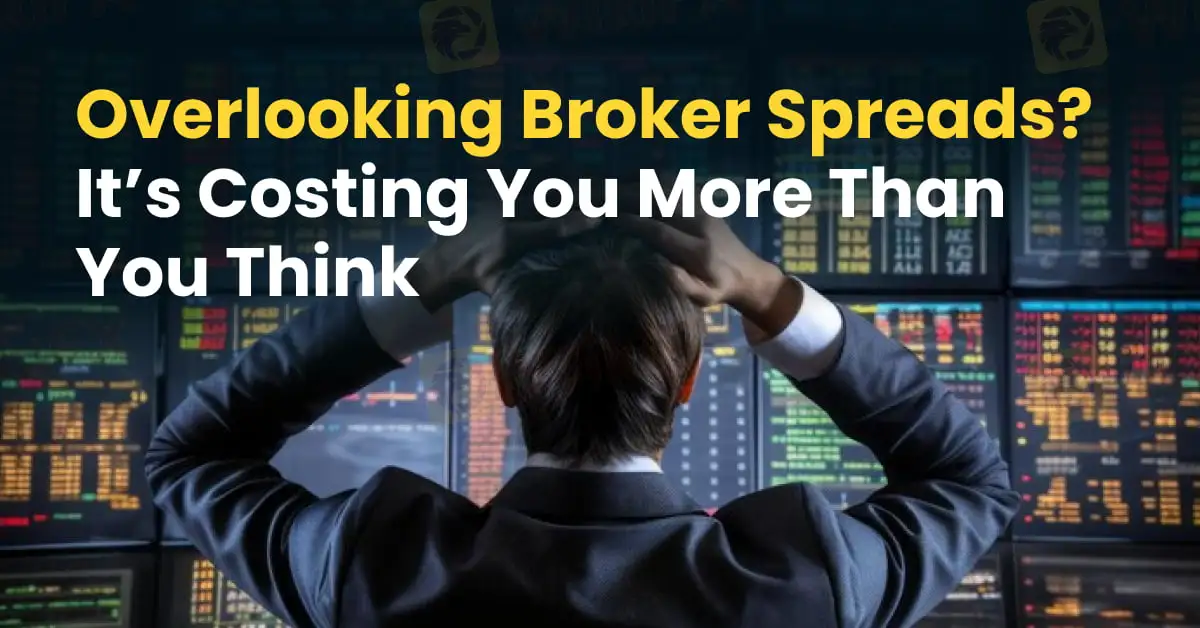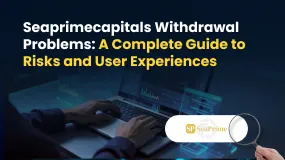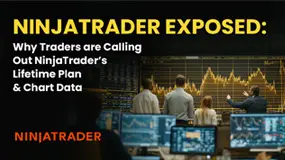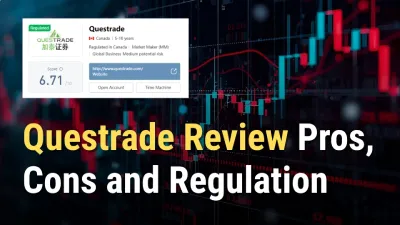简体中文
繁體中文
English
Pусский
日本語
ภาษาไทย
Tiếng Việt
Bahasa Indonesia
Español
हिन्दी
Filippiiniläinen
Français
Deutsch
Português
Türkçe
한국어
العربية
Overlooking Broker Spreads? It’s Costing You More Than You Think
Abstract:In the ever-competitive world of online trading, where margins are slim and timing is everything, traders often obsess over entry strategies, risk management, and technical setups. Yet one critical element is routinely underestimated, if not outright ignored, especially by retail and novice traders alike, is the broker’s spread.

In the ever-competitive world of online trading, where margins are slim and timing is everything, traders often obsess over entry strategies, risk management, and technical setups. Yet one critical element is routinely underestimated, if not outright ignored, especially by retail and novice traders alike, is the brokers spread.
At its core, the spread is the difference between the bid and ask price quoted by a broker. It is, quite simply, the cost of doing business in the markets. For market makers and ECN brokers alike, the spread represents either a primary or supplemental income stream. And for traders, particularly those operating with high frequency or tight profit targets, it represents a potentially significant erosion of earnings.
While a few pips may seem negligible on a single trade, the reality is far from trivial. Consider a scenario where a trader executes 100 trades per month on a major forex pair with an average spread of 1.5 pips, compared to another broker offering 0.5 pips. The difference of 1 pip per trade, when multiplied across all positions, could cost the trader hundreds, even thousands, in cumulative trading costs annually. Over time, such leakage can significantly impact overall profitability, particularly for scalpers, day traders, and algorithmic strategies that rely on high-frequency execution.

Moreover, spreads can vary not only from broker to broker, but also across account types within the same platform. Standard accounts often bundle the cost into wider spreads, while ECN or raw spread accounts may offer tighter pricing but charge a commission. While both pricing models can be legitimate, traders must weigh the total cost per trade, not just the headline spread or commission, to accurately compare accounts.
The importance of a tight, stable spread becomes even more apparent during high-volatility events, such as major economic releases or geopolitical developments. Brokers with subpar liquidity arrangements may widen their spreads dramatically during such periods, triggering stop-outs or undermining strategy effectiveness. As such, consistent spread behaviour under stress conditions is just as critical as the advertised average.
It is also essential to remember that while spreads may appear insignificant in isolation, they compound silently and relentlessly, particularly for traders with narrow profit margins or short-term strategies. In essence, a high spread functions as a form of friction, quietly siphoning off profits that could otherwise have compounded into meaningful gains over time.
In a market where every edge counts, neglecting to evaluate a broker‘s spread offering is not just an oversight, but it is also a strategic error. Savvy traders understand that profitability is not only about making good trades, but also about minimising unnecessary costs. A broker’s spread may not be as attention-grabbing as a trading strategy or signal service, but its long-term impact on performance is arguably just as critical.
Choose your broker wisely. Because in trading, the small things arent so small after all.

Disclaimer:
The views in this article only represent the author's personal views, and do not constitute investment advice on this platform. This platform does not guarantee the accuracy, completeness and timeliness of the information in the article, and will not be liable for any loss caused by the use of or reliance on the information in the article.
Read more

Seaprimecapitals Withdrawal Problems: A Complete Guide to Risks and User Experiences
Worries about Seaprimecapitals withdrawal problems and possible Seaprimecapitals withdrawal delay are important for any trader. Being able to get your money quickly and reliably is the foundation of trust between a trader and their broker. When questions come up about this basic process, it's important to look into what's causing them. This guide will tackle these concerns head-on, giving you a clear, fact-based look at Seaprimecapitals' withdrawal processes, user experiences, and trading conditions. Most importantly, we'll connect these real-world issues to the single most important factor behind them: whether the broker is properly regulated. Understanding this connection is key to figuring out the real risk to your capital and making a smart decision.

iFX Brokers Review: Do Traders Face Withdrawal Issues, Deposit Credit Failures & Free Coupon Mess?
Have you had to pay several fees at iFX Brokers? Had your trading profit been transferred to a scamming website, causing you losses? Failed to receive withdrawals from your iFX Brokers trading account? Has your deposit failed to reflect in your trading account? Got deceived in the name of a free coupon? Did the broker officials not help you in resolving your queries? Your problems resonate with many of your fellow traders at iFX Brokers. In this iFX Brokers review article, we have explained these problems and attached traders’ screenshots. Read on!

NinjaTrader Exposed: Why Traders are Calling Out NinjaTrader’s Lifetime Plan & Chart Data
Did NinjaTrader onboard you in the name of the Lifetime Plan, but its ordinary customer service left you in a poor trading state? Do you witness price chart-related discrepancies on the NinjaTrader app? Did you have to go through numerous identity and address proof checks for account approval? These problems occupy much of the NinjaTrader review online. In this article, we have discussed these through complaint screenshots. Take a look!

Questrade Review Pros, Cons and Regulation
Is Questrade legit? Yes—CIRO regulated broker offering stocks, ETFs, forex, CFDs, bonds, and more with low fees and modern platforms.
WikiFX Broker
Latest News
Axi Review: A Data-Driven Analysis for Experienced Traders
INZO Regulation and Risk Assessment: A Data-Driven Analysis for Traders
GGCC Bonus and Promotions: A Data-Driven Analysis for Experienced Traders
Close Up With WikiFX —— Take A Close Look At Amillex
CapEx Spending On AI Is Masking Economic Weakness
Questrade Review Pros, Cons and Regulation
AccentForex Review: Is It Safe to Invest or Scam?
Cleveland Fed's Hammack supports keeping rates around current 'barely restrictive' level
Delayed September report shows U.S. added 119,000 jobs, more than expected; unemployment rate at 4.4%
The CMIA Capital Partners Scam That Cost a Remisier Almost Half a Million
Currency Calculator



